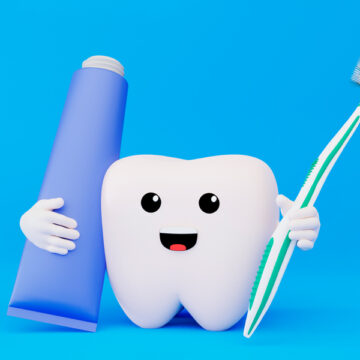Special Needs Pediatric Dentist
Children with special health needs don’t see the dentist nearly often enough, according to the results of a 2011 research study conducted by the National Maternal and Oral Health Resource Center. In fact, the study ranks lack of preventive dental care as the top overlooked health need of special needs kids. Part of the reason is that parents fear how their child will react to a dentist examining their teeth. Children are unpredictable, particularly those with unique physical and emotional challenges. Because of this, parents tend to avoid the dentist for fear of the child having a meltdown and feeling judged by the dental staff.
Treating Children With Special Needs
At Bay Area Kids Dentist, we understand the importance of regular check-ups for all children. Each one of our dentists has extensive training in kid’s dental care, including treating children with special health needs. Whether your child has autism, cerebral palsy, uses a wheelchair, or has a visual or hearing loss, our staff is here to serve your family. In addition to studying each of these special needs in dental school, we attend continuing education so we can better serve all of our patients.
Special Needs Dentistry Preparation
Before we see a pediatric patient for the first time, we ask his or her parent to complete our new patient paperwork. If your child has a special physical or emotional health need we should be aware of, please describe it to the best of your ability in the paperwork. You can email the completed forms to us in advance of the appointment. A member of our staff may contact you to go over the information and ask for additional details about your child’s challenges. This helps us prepare for your child’s visit by making accommodations if necessary.
Your First Dental Visit
When you and your child arrive for a routine check-up, you may need to spend a few minutes in our kid-friendly waiting area before a staff member comes to get you. When the exam room is ready, a dental assistant will come to the waiting area to let you know. Our staff member will greet you and your child with a warm smile and a friendly demeanor. We encourage you to join your child in the exam room to help him or her feel more comfortable.
Extra Care for Special Needs Children
An important aspect of kid’s dental care is treating the patient with respect. This is even more important when the young patient has unique challenges. We explain everything we are about to do before we do it, making sure to take your child’s age and abilities into account. At Bay Area Kids Dentist, we focus on the individual and not the disability. While we understand he or she has challenges, we prefer to concentrate more on your child’s strengths. At the end of the appointment, we discuss our findings with you and provide tips for at-home oral care.
We look forward to meeting you and your child soon.
Problems We Treat
- Emergency Tooth Extraction
- Severe Toothache
- Loose or Dislodged Tooth
- Bleeding Gums
- Knocked Out Tooth
- Infection or Swelling in the Mouth
- Jaw Pain
- Chipped or Cracked Tooth
FAQs
Start brushing as soon as the very first tooth appears, usually around 6 months. Utilize a soft-bristled toothbrush and a tiny smear of fluoride toothpaste.
Help your child brush their teeth twice a day with fluoride toothpaste, limit sugary snacks and drinks, and visit the dentist periodically for cleanings and check-ups.
Watch for signs such as tooth pain, sensitivity to very hot or cold temperatures, visible holes, or dark spots. Regular dental visits help catch cavities early.
Untreated cavities may lead to pain, infection, and may affect how adult teeth come in. It’s important to treat them, even in baby teeth.
It could be a cavity, tooth injury, gum infection, or something stuck between the teeth. A dental checkup can find the cause.
Sudden pain may be caused by a cavity, a cracked tooth, an abscess, or even sinus pressure. It’s best to have a dentist examine it.
Most babies get their first tooth between 6 to 10 months, starting with the lower front teeth.
Bleeding gums can be caused due to brushing too hard, plaque buildup, or the early stages of gum disease. Ensure your child brushes their teeth gently and regularly.
Persistent bad breath can indicate poor brushing, cavities, gum issues, dry mouth, or even allergies. A dental checkup can help find the reason.
Thumb-sucking is normal in babies, but it can affect tooth alignment if it continues past age 4. Consult your dentist if you are concerned.
If it’s a baby tooth, don’t try to put it back—call us for advice. If it’s a permanent tooth, gently rinse it and try to place it back in the socket or in milk, and come to the dentist right away.
Nighttime grinding (bruxism) is common in kids and can be caused due to stress, misaligned teeth, or sleep issues. We can evaluate if treatment is needed.
Sugary snacks, sticky candies, soda, and even dried fruits can lead to cavities. Encourage water, fruits, and crunchy veggies instead.
Not always, but it can be an early sign of gum disease or poor oral hygiene. Regular brushing and checkups help keep gums healthy.
Many kids start orthodontic evaluation around age 7. Early checks help plan for braces if needed.
Yes, but only for kids over age 6 who can spit it out. Choose child-friendly mouthwashes with fluoride.



















